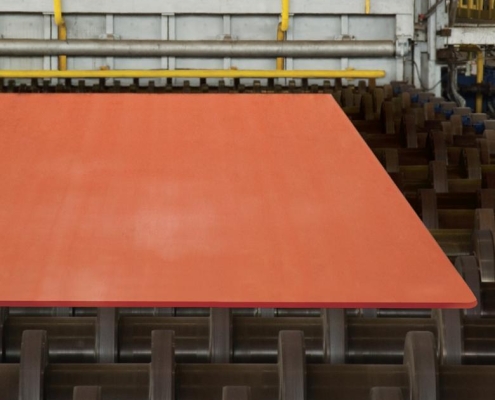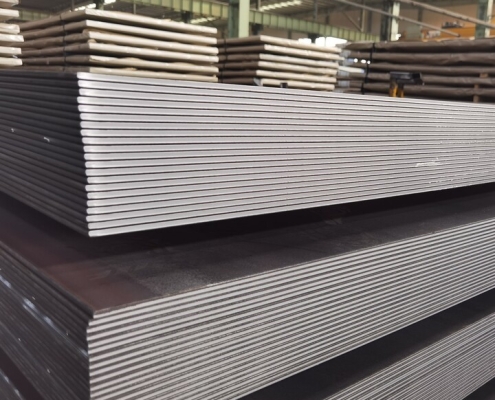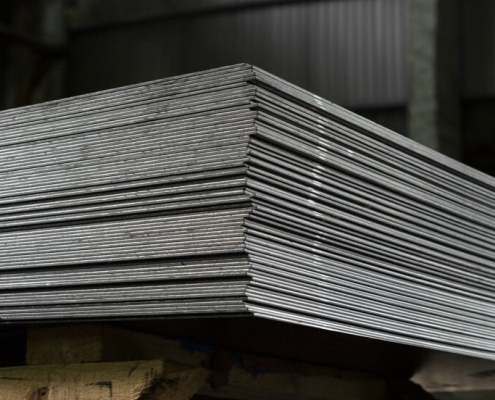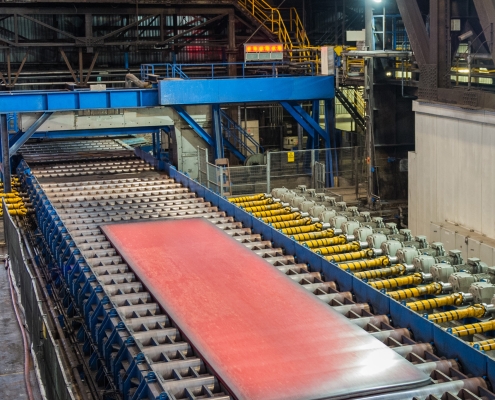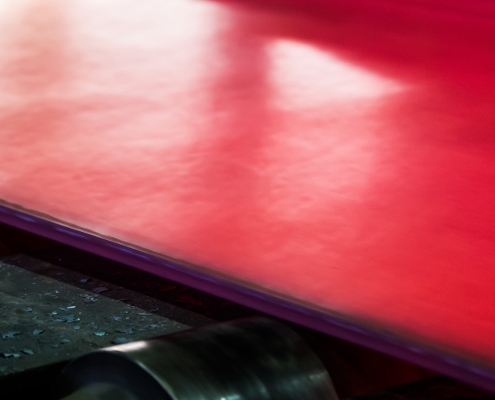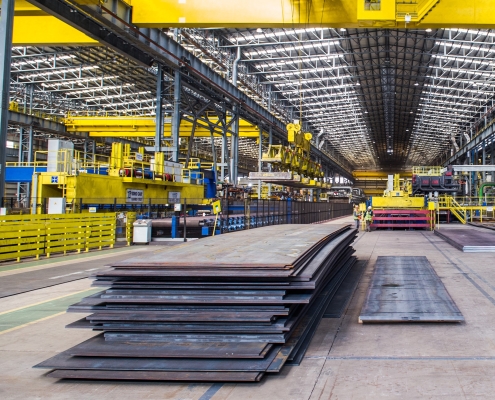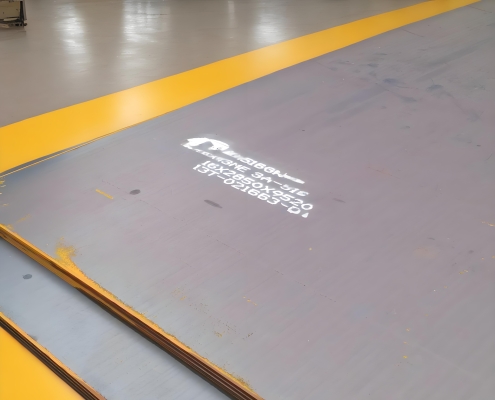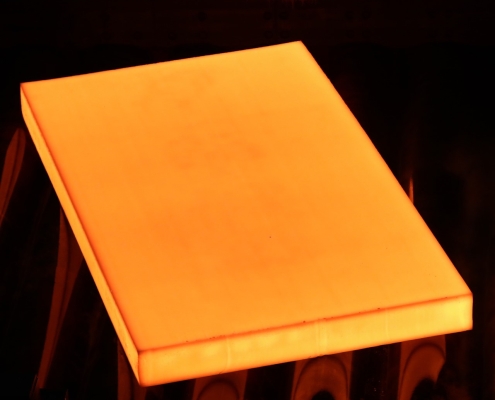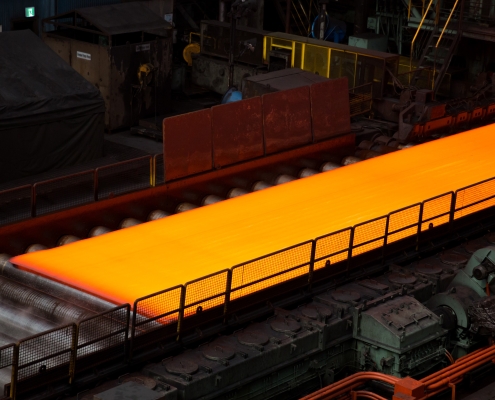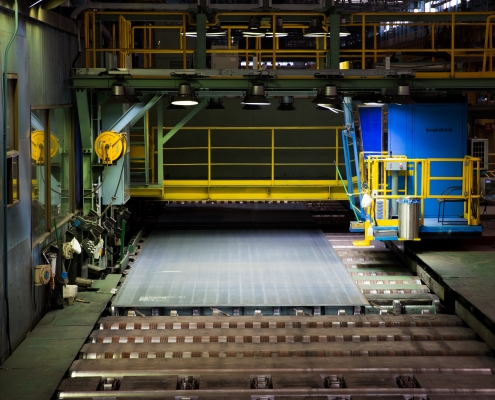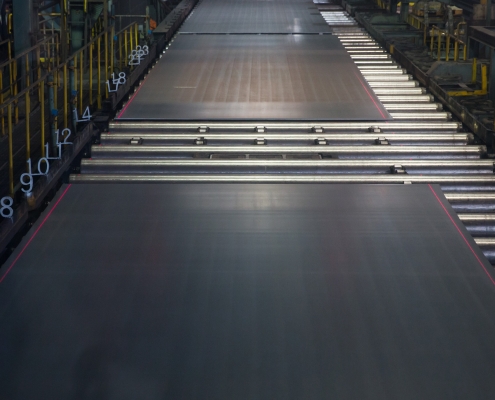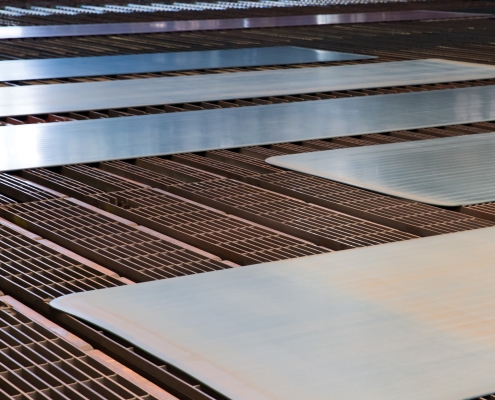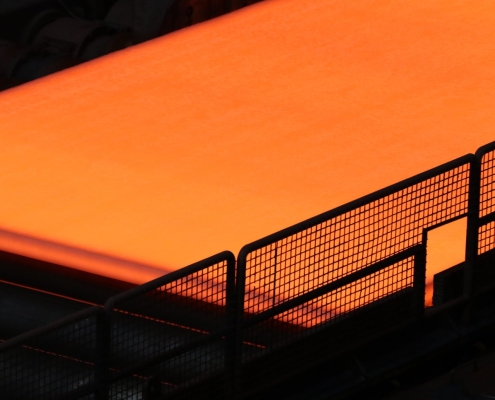Future Energy Steel は、ASTM A203、A204、A387、A515、A516、A517、A537、A542、A543、A553、A736 などの厳格な業界標準を満たすように設計された、ボイラーおよび圧力容器用の特殊な鋼板を提供しています。当社の鋼板は、高温高圧条件向けに最適化されたさまざまなグレードを提供し、優れた強度、耐腐食性、溶接性を保証します。主な特徴は、工業用ボイラーおよび圧力容器の信頼性と安全性にとって重要な、正確な寸法精度、優れた表面仕上げ、優れた機械的特性です。当社は、品質保証への取り組みを基盤として、カスタム切断、テスト、効率的な物流ソリューションなど、包括的なサービスを提供しています。Future Energy Steel のボイラーおよび圧力容器用鋼板は、さまざまな産業用途で運用効率と安全性を確保するのに最適です。詳細については、当社までお問い合わせください。 お問い合わせ.
よくある質問
ボイラーと圧力容器プレートとは何ですか?
Boilers and pressure vessel plates are specialized steel plates designed to withstand high temperatures and pressures in industrial environments. They are used to construct boilers, pressure vessels, and related equipment, crucial to controlling high-pressure fluids or gases. These plates are manufactured to stringent standards to ensure safety, reliability, and performance under demanding conditions.
ボイラーと圧力容器プレートの主な特徴は次のとおりです。
高強度: These plates are engineered to withstand the internal pressure exerted by steam or gases within boilers and pressure vessels without deformation or failure.
耐腐食性: Many boiler and pressure vessel plates are made from alloyed or stainless steel, which offers excellent corrosion resistance and ensures long-term durability and reliability.
Good Weldability: Weldability is critical for joining plates to construct complex boiler and pressure vessel designs. These plates are often engineered to have good weldability to facilitate fabrication.
耐衝撃性: They are designed to resist the impact of sudden pressure changes or thermal stresses that can occur during operation, ensuring structural integrity and safety.
Compliance with Standards: Boilers and pressure vessel plates must comply with international standards such as ASTM (American Society for Testing and Materials), ASME (American Society of Mechanical Engineers), and others, which specify criteria for chemical composition, mechanical properties, testing methods, and dimensional tolerances.
ボイラーおよび圧力容器のプレートには何種類ありますか?
ボイラーおよび圧力容器のプレートは、材料の構成、使用目的、およびさまざまな用途に必要な特定の特性に基づいて、いくつかのタイプに分類できます。一般的なタイプには次のものがあります。
炭素鋼板: These are the most commonly used boiler and pressure vessel plates due to their affordability and moderate strength. They are suitable for a wide range of temperatures and pressures.
Low Alloy Steel Plates: These plates contain alloying elements such as manganese, nickel, chromium, or molybdenum to enhance their mechanical properties, such as strength, toughness, and corrosion resistance. They are used in applications requiring higher strength and resistance to corrosion and abrasion.
High-Strength Steel Plates: These plates are designed to withstand higher pressures and temperatures than standard carbon steel plates. They are used in critical applications where strength and reliability under extreme conditions are paramount.
Stainless Steel Plates: Stainless steel plates offer excellent corrosion resistance and are used in applications where the vessel or boiler comes into contact with corrosive fluids or environments. They are ideal for industries such as chemical processing and food production.
Nickel Alloy Plates: These plates contain high levels of nickel and other alloying elements to provide superior resistance to corrosion and high temperatures. They are used in specialized applications such as nuclear reactors and chemical processing equipment.
Pressure Vessel Quality (PVQ) Plates: PVQ plates are specifically manufactured to meet stringent ASME standards for pressure vessel applications. They undergo rigorous testing and certification to safely contain high-pressure fluids or gases.
ボイラーや圧力容器の製造に使用される材料は何ですか?
ボイラーや圧力容器は、通常、高温高圧下でも高い強度、耐腐食性、安定性を発揮する材料を使用して製造されます。材料の選択は、動作条件、必要な機械的特性、特定の用途要件などの要因によって異なります。ボイラーや圧力容器の製造に使用される一般的な材料には、次のものがあります。
炭素鋼: Carbon steel is widely used due to its affordability, good mechanical properties, and ease of fabrication. It is suitable for moderate temperatures and pressures and is often used in lower to medium-pressure applications.
Low Alloy Steel: Low alloy steels contain small amounts of alloying elements such as manganese, nickel, chromium, or molybdenum to enhance their mechanical properties, including strength, toughness, and corrosion resistance. They are used in applications requiring higher strength and resistance to corrosion and abrasion.
ステンレス鋼: Stainless steel offers excellent corrosion resistance and is used in applications where the vessel or boiler comes into contact with corrosive fluids or environments. It is commonly used in chemical processing, food production, and pharmaceuticals.
Nickel Alloys: Nickel alloys, such as Inconel and Monel, offer exceptional resistance to corrosion, high temperatures, and stress corrosion cracking. They are used in specialized applications in extreme conditions or aggressive environments, such as nuclear reactors and chemical processing equipment.
二相およびスーパー二相ステンレス鋼: These are advanced stainless steels with a mixed microstructure of austenite and ferrite phases. They offer high strength and excellent corrosion resistance and are used in demanding offshore and marine applications.
チタン: Titanium and titanium alloys are used in specialized high-performance applications where lightweight materials with high strength and corrosion resistance are required, such as in aerospace and specific chemical processing industries.
ボイラーおよび圧力容器プレートの規格は何ですか?
Boiler and pressure vessel plates must adhere to rigorous standards to meet safety, performance, and regulatory requirements. Some of the key standards governing boiler and pressure vessel plates include:
ASME Boiler and Pressure Vessel Code: This is perhaps the most widely recognized standard globally for boiler and pressure vessel construction. It provides rules for the design, fabrication, inspection, testing, and certification of pressure vessels and their components. ASME BPVC includes various sections covering different materials and construction methods.
ASTM国際規格: ASTM standards are widely used to specify materials and test methods for boiler and pressure vessel plates. Standards like ASTM A516/A516M (carbon steel plates for moderate and lower temperature service) and ASTM A537/A537M (heat-treated carbon-manganese-silicon steel plates) are commonly referenced.
EN規格: European Norm (EN) standards issued by the European Committee for Standardization (CEN) are used for boiler and pressure vessel plates in European countries. Examples include EN 10028 (pressure vessel steel plates) and EN 10207 (steels for simple pressure vessels).
DIN Standards: Deutsches Institut für Normung (DIN) standards from Germany also provide boiler and pressure vessel plate specifications. DIN standards cover materials and technical delivery conditions for various types of steel used in pressure vessels.
JIS Standards: Japanese Industrial Standards (JIS) provide specifications for steel plates used in boilers and pressure vessels in Japan and other Asian countries.
GB Standards: Chinese National Standards (GB) specify requirements for boiler and pressure vessel plates used in China, ensuring compliance with local regulatory requirements and industrial standards.
API 標準: The American Petroleum Institute (API) issues standards for boiler and pressure vessel plates explicitly used in the oil and gas industry, such as API 620 and API 650 for storage tanks.
ボイラーおよび圧力容器プレートの用途は何ですか?
ボイラーおよび圧力容器プレートは、高圧の液体またはガスの封じ込めが重要な産業において不可欠なコンポーネントです。主な用途には次のようなものがあります。
発電: Boiler plates are used to construct boilers and steam turbines in fossil fuel, nuclear, and renewable energy power plants. They withstand high temperatures and pressures to generate steam for electricity generation.
Oil and Gas Processing: Pressure vessel plates are used in refineries and petrochemical plants to store and process crude oil, natural gas, and refined products. They ensure the safe containment of volatile substances under high pressure.
化学処理: Pressure vessels made from specialized plates are used in chemical plants to handle corrosive chemicals and reactions under controlled conditions. They protect workers and the environment from hazardous substances.
Pulp and Paper Industry: Boiler plates are used in pulp and paper mills to produce steam for paper production processes such as drying and pressing. They contribute to the efficiency and reliability of paper manufacturing operations.
食品・飲料業界: Pressure vessels with hygienic boiler plates sterilize, pasteurize, and process food and beverages. They maintain quality and safety standards in food production facilities.
航空宇宙および防衛: Specialized pressure vessels made from high-strength plates are used in aerospace applications, such as hydraulic systems in aircraft and spacecraft, and military applications for storing and transporting fuels and chemicals.
Medical and Pharmaceutical: Pressure vessels with sanitary boiler plates are used in the medical and pharmaceutical industries to sterilize, purify, and store medical gases and liquids.
水処理: Pressure vessels made from corrosion-resistant plates are used in water treatment plants for purification, filtration, and desalination processes. They ensure the quality and availability of clean water.
Industrial Manufacturing: Boiler and pressure vessel plates are used in various manufacturing processes, such as automotive manufacturing for heat treatment and forming operations and industrial machinery for hydraulic and pneumatic systems.

